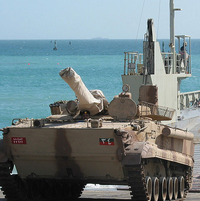The Gulf region ranks among the most valuable and strategically important pieces of real estate in the world because of its abundance of oil and gas resources and its location at vital geographic crossroads for the world's security and economy. And until viable alternative energy resources emerge to sufficiently fuel the global economy, the Gulf region will continue to be one of the most strategically contested regions of the world for years to come.
In large part due to this strategic importance, the Gulf has been wrought with instability for decades, plagued by both conflict between states in the region as well as increased asymmetric threats posed by terror networks. In the past 30 years, the region has experienced three major conventional wars, dozens of smaller cross-border and internal conflicts, and thousands of attacks from the most dangerous terror networks with a regional and global reach. The possibility of another major conventional military conflict is ever-present, while terror attacks in the region are a regular occurrence. Complicating the picture even further, the specter of a nuclear arms race now looms due to unanswered questions about Iran's ongoing nuclear program.
The current regional security system in the Gulf functions, but it remains suboptimal. Countries in the region have spent tens of billions of dollars on weapons systems that have only marginally enhanced their own security, while altering threat perceptions in the region in a way that undermines overall stability. The United States, the main external security guarantor for most countries in the Gulf, has operated in a reactive and tactical mode in the region in response to serious security threats. As a result, it has fostered a dysfunctional and ultimately unsustainable dependency on its own security footprint among many countries, particularly those in the Arab Gulf. This largely ad hoc approach to regional security, driven by an imperative to contain Iran and shaped by recent operations in response to threats posed by terror networks such as al-Qaida, has resulted in an inefficient patchwork of bilateral relationships between the United States and key countries in the region.

